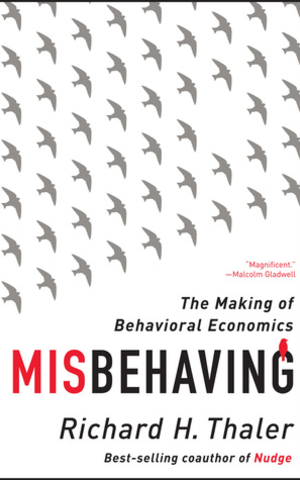
Misbehaving: The Making of Behavioral Economics
- Book
- Jun 14, 2016
- #BehavioralEconomics
Nobel laureate Richard H. Thaler has spent his career studying the radical notion that the central agents in the economy are humans—predictable, error-prone individuals. <em>Misbeha...
Show More
Number of Pages: 432
ISBN: 039335279X
ISBN-13: 9780393352795
Mentions
See All
Alex Wieckowski @AlexAndBooks_
·
Mar 10, 2022
- Curated in BEST economics books
Tyler Cowen @TylerCowen
·
Nov 23, 2015
- Curated in Best non-fiction books of 2015
Sevcan Yeşiltaş @SevcanYeilta
·
Sep 5, 2022
- Curated in A List of Book Recommendations